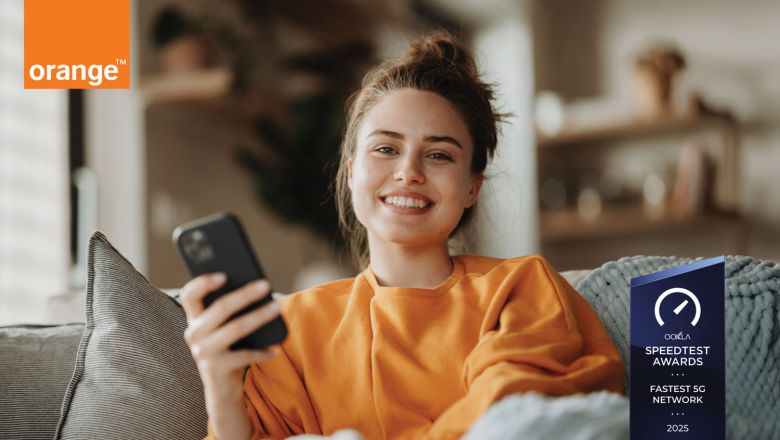Many children look forward to getting their first smartphone at a very young age, while parents would prefer to postpone that moment a bit longer. Moreover, the majority of parents feel insufficiently prepared for this step and do not know where to turn for advice or tips. To support families in this, Orange Belgium is launching the Smartphone Pass, a free platform that helps parents and children discuss topics such as screen time, privacy, online safety, and cyberbullying.
• Eight out of ten Belgian parents do not know where to turn for help on first smartphone use for their children.
• Only 17% of parents do not monitor smartphone use at all.
• A quarter of children believe that their parents do not understand the online world that young people inhabit. Six out of ten parents say they can no longer keep up with the digital world.
• 65% of parents clearly encounter obstacles when discussing digital safety.
Recent research by iVOX commissioned by Orange Belgium* shows that eight out of ten Belgian parents do not know where to turn for tips on smartphone use for children. Today, parents mainly seek support from parental control apps (35%), friends or acquaintances (31%), and family (30%).
“Our research confirms it: many parents feel powerless when it comes to this crucial step for their children. They want to guide their children as best as possible, but they often lack the right tools to start and maintain this important conversation,” says Nathalie Rahbani, Director & Acting Chief Brand, Communication and ESG Officer at Orange Belgium. “With the Smartphone Pass, we want to provide that support. The platform is not intended to lecture, but rather to serve as a starting point for dialogue. Parents and children go through an interactive test together with questions and scenarios on topics such as screen time, privacy, and cyberbullying. The goal is to turn the moment of getting a first smartphone into a shared learning experience, so that families feel stronger and more connected.”
Lack of understanding about the digital world
In Belgium, children receive their first smartphone at an average age of eleven, while parents would ideally prefer to wait until they are thirteen years old. From the very beginning, it is clear that parents face challenges in guiding their children through their first steps in the digital world. From choosing suitable apps to dealing with social media, many parents seek support in guiding their child.
Conversations between parents and children often encounter mutual lack of understanding: only a third of parents feel these discussions go smoothly, while 65% clearly experience obstacles. A quarter of children believe that their parents do not understand the online world that young people inhabit, which makes such conversations more difficult. Six out of ten parents say they can no longer keep up with their children’s digital world.
When conversations about digital parenting take place, most parents try to set clear rules (49%), limit screen time, sometimes with an app (38%), or regularly talk about online safety (35%). More than four in ten parents (43%) have these conversations weekly. These discussions often face a major hurdle: mutual lack of understanding. It is precisely this gap that the Smartphone Pass aims to bridge, by providing a neutral and playful foundation to start the conversation about digital literacy with children.
Parents supervise with hesitation
Although many parents do monitor their children's smartphone use, they often have doubts about the right approach. Only 17% fully trust their child's sense of responsibility and leave all control behind. The rest prefer to keep an eye on things.
More than half of the parents surveyed (55%) rank excessive screen time among their top three concerns, a figure that rises to 60% in Flanders. In addition, 37% place exposure to inappropriate content in their top three, and just as many parents worry about online contact with strangers.
Steve Majerus, Professor of Psychology & Cognitive Neuroscience at the University of Liège, adds: “What children can access on their smartphones quickly clashes with their cognitive and emotional level of development, exposing them to situations that are difficult for them to understand, often without realizing it themselves. Getting their first smartphone is a long-awaited moment for many of our children, but it is clearly also a source of concern for parents and can lead to genuinely problematic situations for the child. It is crucial that parents engage in dialogue.”
For Good Connections
The Smartphone Pass reflects Orange's commitment to #ForGoodConnections, the company’s initiative to promote a safer digital world. Under this banner, Orange Belgium supports responsible digital habits and is actively committed to protecting young people from digital abuse. This year, Orange Belgium is focusing on the fight against cyberbullying, with future plans to address online hate and the impact of hyperconnectivity. Through For Good Connections and the Smartphone Pass, Orange Belgium enables customers to enjoy a safe and balanced digital experience.
* Online research conducted by research agency iVOX on behalf of Orange Belgium between August 22nd and 31st 2025, among 1,000 Belgian parents with children aged 7 to 18, representative in terms of region, gender, age, and education level.



